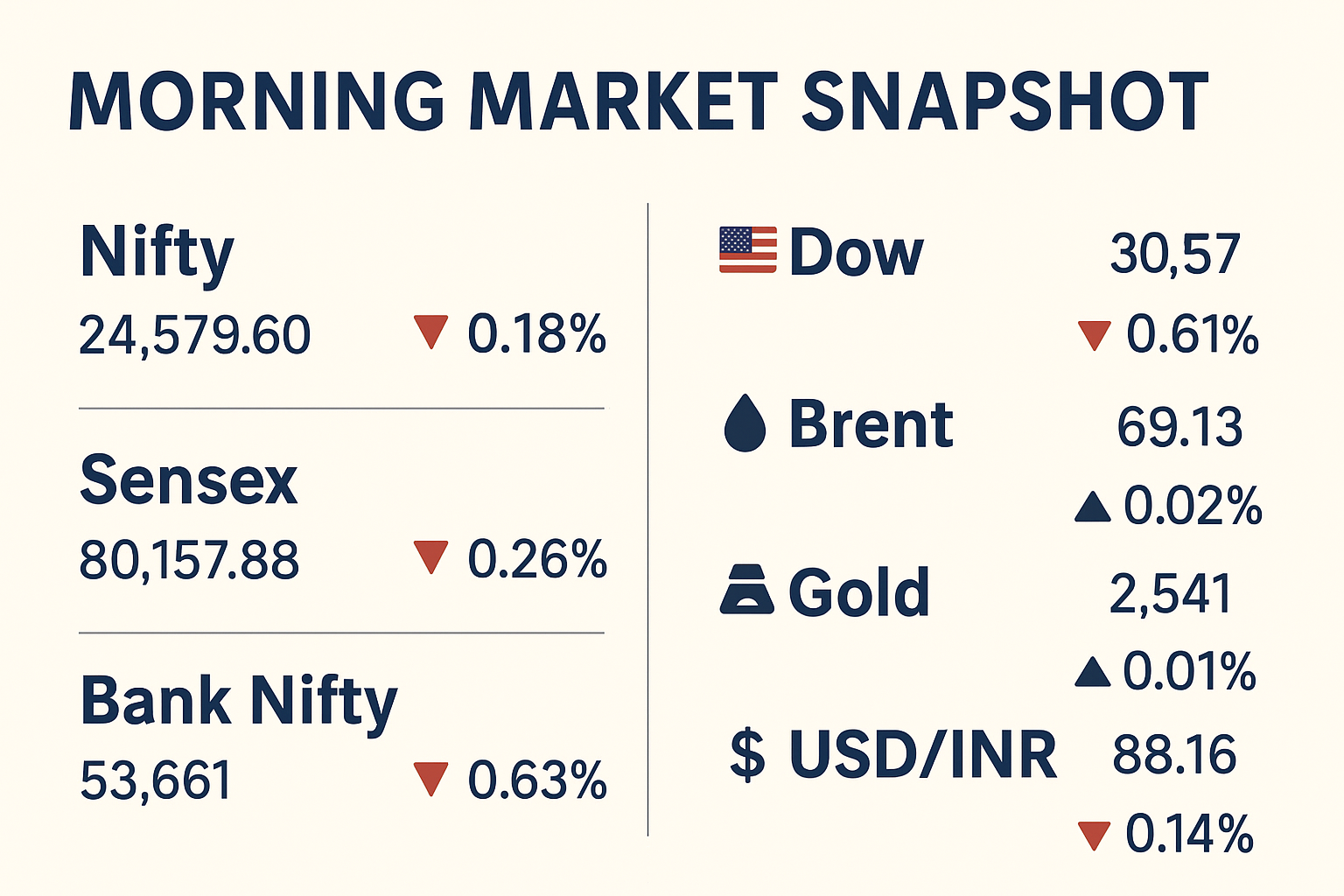
Edufin Mantra | Pre-Market Playbook — Wednesday, 3 Sept 2025 (IST)
September 3, 2025Thinking of Trading in the Indian Stock Market? Read This First.
The Indian stock market is buzzing. With the surge in Demat accounts and the ease of online investing through slick mobile apps, more Indians than ever are looking to the markets to grow their wealth. The stories of quick profits are alluring, but for every success story, there are countless tales of losses driven by lack of knowledge and discipline.
Trading in the stock market is not a lottery; it’s a serious business that demands preparation, strategy, and a strong mindset. If you’re considering stepping into this world, treating it with the respect it deserves is the first step towards success.
This guide will walk you through the essential things you must consider before you place your first trade.
1. The Most Important Audit: Know Yourself
Before you analyze any company’s balance sheet, you need to analyze your own. This is the most crucial, yet often overlooked, step.
A. Your Financial Health
- Emergency Fund: Do you have at least 6-9 months of living expenses saved in a liquid and safe instrument (like a fixed deposit or liquid fund)? Market trading is funded by risk capital, not your emergency fund.
- Debt Situation: Are you servicing high-interest debt like personal loans or credit card bills? It often makes more financial sense to clear this debt before venturing into the high-risk environment of trading.
- Capital: How much money are you willing to invest? The golden rule is: Only invest money you can afford to lose. This isn’t pessimism; it’s a strategy to protect you from financial ruin and emotional decision-making.
B. Your Risk Appetite
Are you a risk-taker or risk-averse? Trading involves a higher degree of risk than long-term investing. Be honest with yourself. If the thought of losing 10% of your capital in a day gives you sleepless nights, high-frequency intraday trading might not be for you.
C. Your Time Commitment
Trading is not a passive activity.
- Intraday Trading: Requires you to be glued to the screen for the entire market session (9:15 AM to 3:30 PM).
- Swing Trading: Involves holding stocks for a few days to weeks. It requires a few hours of research and tracking per week.
- Positional Trading: Holding for a few weeks to months, requiring less daily monitoring but a strong understanding of medium-term trends.
How much time can you realistically dedicate to learning and trading? Your answer will help define your trading style.
2. Trading vs. Investing: Choose Your Path
Many beginners use these terms interchangeably, but they are fundamentally different.
- Investing is about wealth creation over the long term (years, even decades). Investors use Fundamental Analysis to buy into great businesses, hoping to benefit from the company’s growth, profits, and dividends. It’s like owning a piece of the business.
- Trading is about generating profits from short-term price fluctuations. Traders use Technical Analysis (studying charts, patterns, and indicators) to predict future price movements. It’s about capitalizing on market sentiment and momentum.
You can be both an investor and a trader, but it’s vital to keep these portfolios and their underlying strategies separate.
3. Gearing Up: The Essential Toolkit
Once you have clarity on the above, it’s time to get the practicalities sorted.
- PAN Card: A Permanent Account Number (PAN) is mandatory for all financial transactions in India, including opening a Demat account.
- Bank Account: You’ll need an active bank account to link to your trading account for fund transfers.
- Demat and Trading Account:
- A Demat Account (Dematerialisation Account) holds your shares and securities in an electronic format.
- A Trading Account is the account you use to place buy and sell orders on the stock exchange (like the NSE and BSE).
Most modern brokers offer a 2-in-1 Demat and Trading account.
Choosing the Right Broker
Your broker is your gateway to the market. Consider these factors:
- Brokerage Fees: Discount brokers (like Zerodha, Upstox, Angel One) offer very low or zero brokerage on equity delivery and a flat fee (e.g., ₹20) per trade for intraday and F&O. Full-service brokers (like ICICI Direct, HDFC Securities) charge higher fees but offer research and advisory services.
- Platform & Technology: Is the trading app/website stable, fast, and user-friendly? A poorly designed platform can be a disaster during volatile market hours.
- Customer Support: How responsive and helpful is their support team?
- Products Offered: Do they offer all the segments you might want to trade in, like Equity, Futures & Options (F&O), Commodities, and Currency?
4. Knowledge is Power: Educate Yourself
Jumping into trading without knowledge is pure gambling. Dedicate time to learning the basics.
A. Learn the Lingo
Understand key terms like Stop-Loss, Target, Volume, Volatility, Liquidity, Bid-Ask Spread, etc.
B. Types of Analysis
- Fundamental Analysis: Involves looking at a company’s financial statements, management quality, competitive advantages, and industry trends. Key metrics include P/E Ratio (Price-to-Earnings), EPS (Earnings Per Share), and Book Value. While this is primarily for investors, traders should also be aware of major corporate events (like earnings results) that can cause massive price swings.
- Technical Analysis: This is the trader’s primary toolkit. It is based on the idea that historical price action and volume can predict future movements. Key concepts include:
- Candlestick Charts: The visual language of price action.
- Support & Resistance: Key price levels where buying or selling pressure is expected.
- Indicators: Tools like Moving Averages, RSI (Relative Strength Index), and MACD (Moving Average Convergence Divergence) that help identify trends and momentum.
C. Market Segments
- Equity (Cash Market): Buying and selling company shares. This is the best place for a beginner to start.
- Futures & Options (F&O): These are derivative instruments. They offer high leverage, which means the potential for high profits and, more importantly, unlimited losses. Beginners should stay away from F&O until they have significant experience and knowledge.
5. The Golden Rules of Trading: Strategy & Discipline
This is what separates successful traders from the crowd.
- Start Small: Begin with a small amount of capital to get a feel for the market’s psychological pressures.
- Have a Trading Plan: Before you enter any trade, you must know your:
- Entry Price: At what price will you buy?
- Stop-Loss: At what price will you sell to cut your losses if the trade goes against you? This is non-negotiable.
- Target Price: At what price will you sell to book your profit?
- Master Risk Management: Never risk more than 1-2% of your total trading capital on a single trade. Another key concept is the Risk-Reward Ratio (R:R). Aim for trades where the potential profit is at least twice the potential loss (e.g., an R:R of 1:2 or higher).
- Avoid the Herd Mentality: Don’t trade based on tips from friends, TV channels, or social media groups. Do your own research (DYOR). What works for someone else’s risk profile and strategy may not work for you.
- Control Your Emotions: Greed and fear are a trader’s worst enemies. Greed makes you hold onto winning trades for too long, while fear makes you sell winning trades too early or panic-sell during minor dips. Stick to your trading plan religiously.
Conclusion: A Marathon, Not a Sprint
Trading in the Indian stock market can be a rewarding journey, both intellectually and financially. However, it’s a marathon, not a 100-meter dash. There is no “holy grail” or “secret strategy” that guarantees success.
The path to becoming a profitable trader is paved with continuous learning, rigorous discipline, and respect for market risks. Start your journey by investing in your education, not just in stocks. Paper trade (practice trading with virtual money) to test your strategies before deploying real capital.
Step into the market with caution, knowledge, and a well-defined plan, and you will be well ahead of the crowd.
Disclaimer: This blog post is for educational purposes only and should not be considered as financial advice. Stock market trading involves substantial risk of loss. Please consult with a SEBI-registered financial advisor before making any investment or trading decisions.

